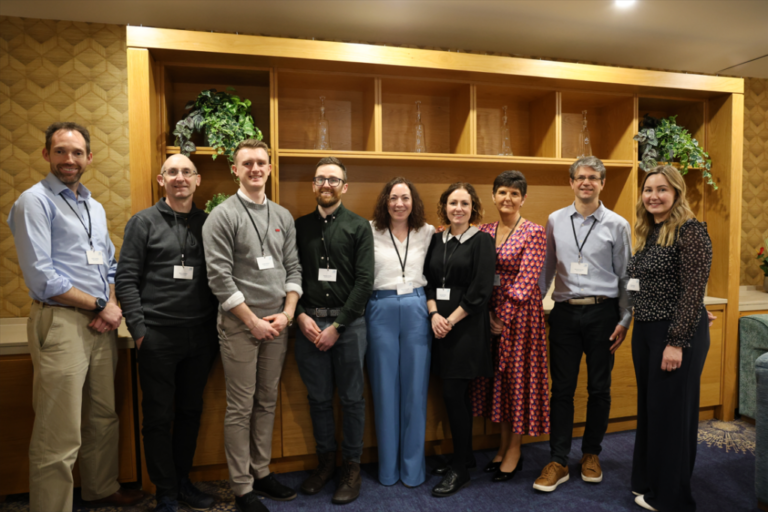Met Éireann’s Climate Services Division has coordinated and led the inaugural workshop of the National Framework for Climate Services (NFCS).
The two-day, in-person workshop featured separate focused sessions for the primary stakeholder groups – namely producers and users of climate services – with the aim of engaging in open dialog and conversations between the NFCS and stakeholders themselves.
Government departments, national authorities and semi-state bodies were among those represented among almost 70 guests at the second day of the event, which brought together end users of climate services with the aim of guiding them through how to engage with the NFCS, how to understand the climate information they need, and where to go for it.
The first day focused on producers, developers and researchers of climate services, to establish underpinning information to inform climate services and produce climate services for end users.
Following an introduction to the NFCS by Keith Lambkin, head of climate services at Met Éireann, the feature presentation on Day 1 was from Angela Michiko Hama, executive director of the Swiss National Centre for Climate Services. The program continued with talks on the various climate services currently provided and used in Ireland, including from the Irish Environmental Protection Agency (EPA), Geological Survey Ireland (GSI), Met Éireann, University College Cork (UCC), the Marine Institute and ICARUS Climate Research Centre at Maynooth University. Following this, Hans Olav Hygen, deputy director of the Norwegian Centre for Climate Services, outlined some of the achievements and challenges experienced in Norway since the center was launched in 2013.
Attention then turned to the Translate project, a Met Éireann-led initiative to standardize future climate projections and develop services to aid climate risk decision making by reviewing existing climate models. Following on from the Translate presentation, partner contributors the EPA and UCC introduced the Climate Ireland platform, the National Climate Change Risk Assessment (NCCRA) and a demonstration on climate risk.
For more key training updates from the meteorological technology industry, click here.



